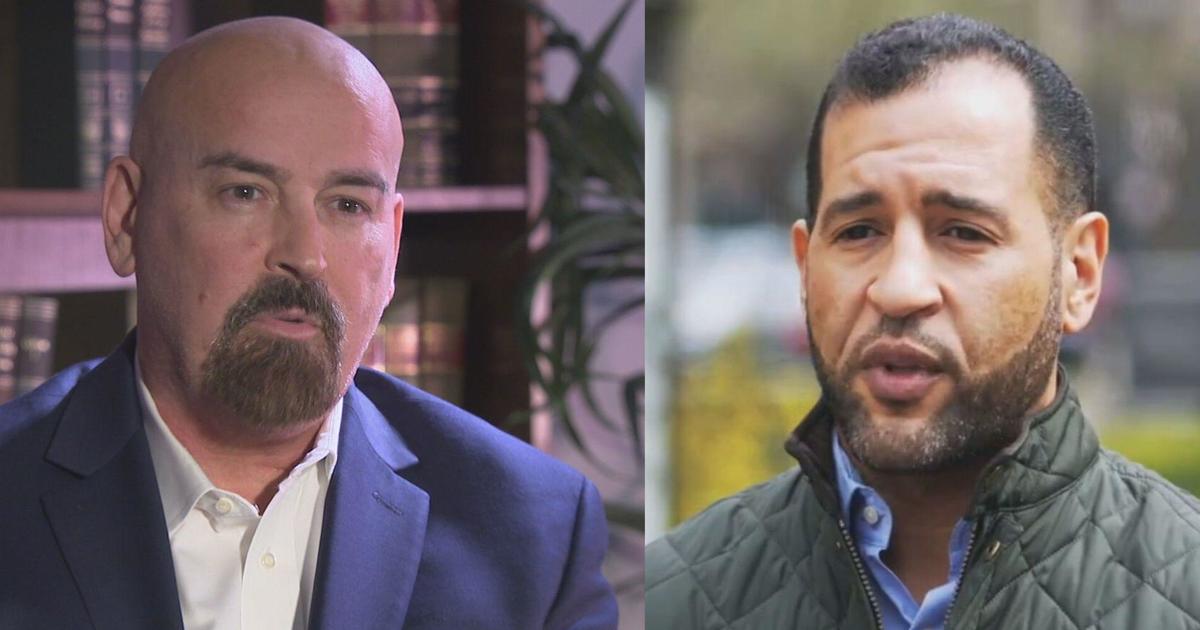Keller @ Large: Elizabeth Warren's Failed Campaign For Change
BOSTON (CBS) - It seems like years – not less than 13 months – since Sen. Elizabeth Warren officially kicked off her presidential campaign with a speech at the Everett Mill in Lawrence.
On that bitter cold day, back when winters were actually cold around here, Warren told the story of the 1912 Bread and Roses Strike, when female, non-union immigrant workers walked off the job for two violence-marred months in protest of inhumane working conditions and pay cuts. The strike forced Congressional hearings and reforms.
"The story of Lawrence is a story about how real change happens in America," Warren told the crowd that day. "It's a story about power — our power — when we fight together."
But the story of Warren's now defunct campaign is, despite moments of success, a story of how overdue changes – like the election of our first female president – can be undermined by a toxic mix of lingering sexism, political infighting and hubris.
Expectations were relatively low when Warren's campaign began. She had, the pundit class seemed to agree, damaged herself by seeking a DNA test to finally debunk the claim that she had been consciously misrepresenting Native American heritage in her family background. Her inability to document that family lore when challenged about it during her 2012 run for U.S. Senate had, in the hands of mostly male columnists and political enemies, metastasized over the years into an allegory for her alleged dishonesty, a ruse she concocted to advance her career in affirmative-action-obsessed academia.
There was never any real evidence of the charge, which was debunked by the Boston Globe in 2018. And there reportedly was division within Warren's camp over whether or not she should even try to get it thrown out of political court.
But Warren, the story goes, wanted to handle it that way. A similar explanation was offered for her decision to be candid about the fact she was considering a presidential run even as she sought re-election in the Senate in November 2018.
Therein lies a key element of the Warren candidacy – it was largely an in-house affair, devoid of the usual phalanx of outside consultants and ad-makers, with the reins held closely by the candidate herself.
When the finance director left the campaign in March 2019, it was reportedly "as a result of the senator's recent decision to swear off soliciting money from wealthy donors during the primaries." A few months later came her fateful decision to go all in on Bernie Sanders' controversial Medicare for All plan. When Warren was called out for not releasing a health care reform plan during a pivotal debate in October, it stepped on her ingenious I've-got-a-plan-for-that branding that had propelled her rise to front runner status during the summer of 2019.
Was it a sexist double standard that she was attacked for vagueness while the equally-guilty Sanders skated? Yes, but the charge stuck and hurt.
Meanwhile, admirers wondered when she would address the donkey in the room – the fact that Sanders seemed to be the major obstacle standing between her and the nomination, or at least much-needed success in the New Hampshire primary.
As late as early January of 2020, with crucial voting in Iowa and New Hampshire just weeks away, Warren declined during a WBZ-TV interview to capitalize on a distinction between her support for the new USMCA trade deal (the rewrite of NAFTA) and Sanders' opposition to it, a contrast campaign aides had hoped she would highlight.
The deal, Warren noted, while flawed, would bring an immediate shot of economic relief to beleaguered farmers and small businesses in Iowa and New Hampshire struggling with the fallout from President Trump's tariff wars. Better to take half a loaf and help people, then go back later and fix lingering problems with USMCA, she said, an echo of the late Sen. Ted Kennedy's modus operandi.
But when asked to compare and contrast her approach to that of Sanders, who was outright dismissing the deal, Warren declined. "You'll have to go ask Bernie about that," she said.
Warren finally began drawing such contrasts with Sanders in late February, too late to stop her slide. Her reward for such forbearance and collegiality – nasty attacks from Sanders online legions, snark from some of his campaign people, and a self-inflicted dent in her branding as a fighter who would always "persist."
One final moment of brand mutilation came after a chastened Warren vowed during her New Hampshire concession speech to be a "unifying" force in the party going forward, closely followed by two debates in which she sprayed rhetorical fire at competitors. Which was it, unifier or avenger?
It wasn't clear, and it wouldn't be surprising to learn that some voters who harbored doubts about Warren's authenticity dating back to the whole Native American fiasco were reminded yet again of those concerns.
Too bad. A strong case can be made that, with the possible exception of Joe Biden, Warren was the most qualified candidate in the field. Unlike Biden, she seemed well-prepared to take on Trump on the debate stage and match his vitriol.
But like other impressive candidates in this race who've fallen by the wayside, Warren's theory of the case just didn't hold up. Her call for "big, structural change" – ostensibly more marketable than Sanders' demand for "revolution" – was, in the end, broomed away by Biden's offer of comfort food instead.
The only change most voters wanted, it turned out, was a change of Oval Office occupant, and Warren was never able to persuade them she was the best-equipped to make it.
'Get ready," she said the day she launched her campaign in Lawrence in February 2019, "because change is coming faster than you think."



